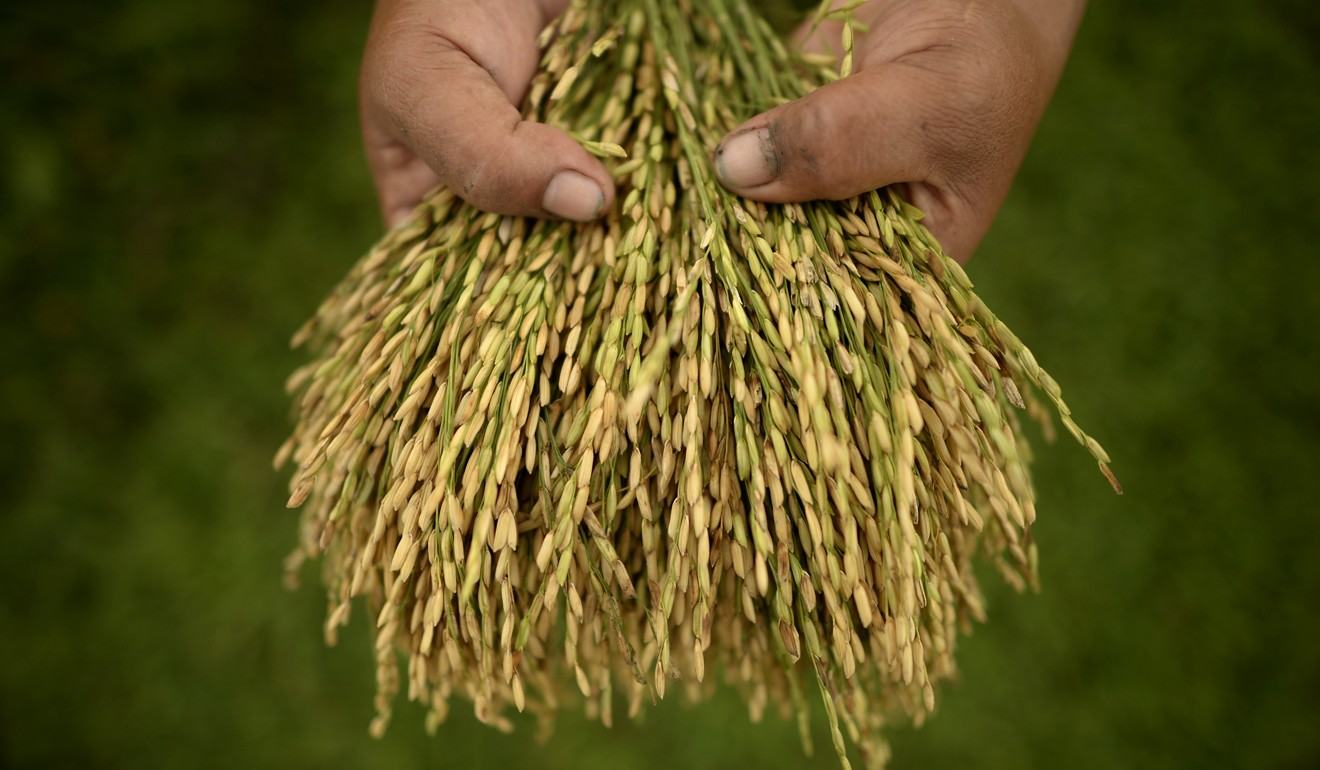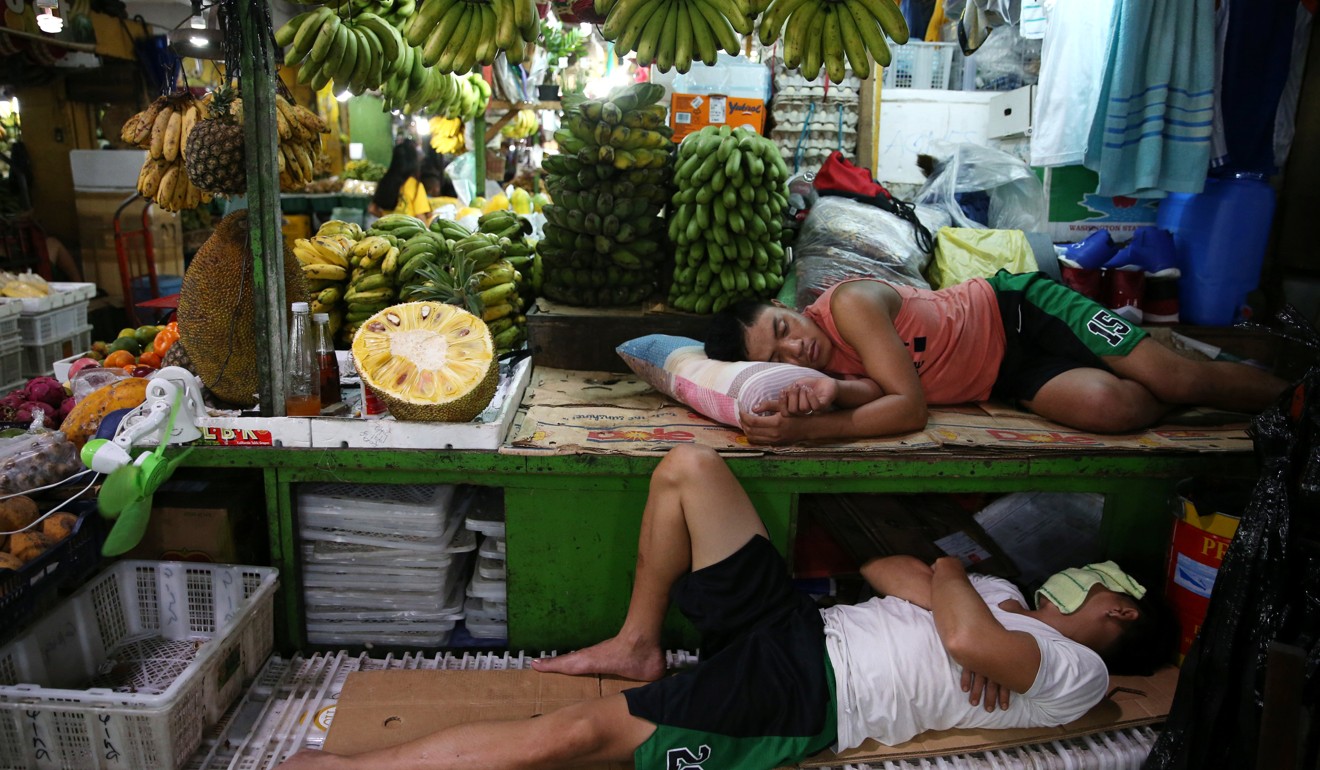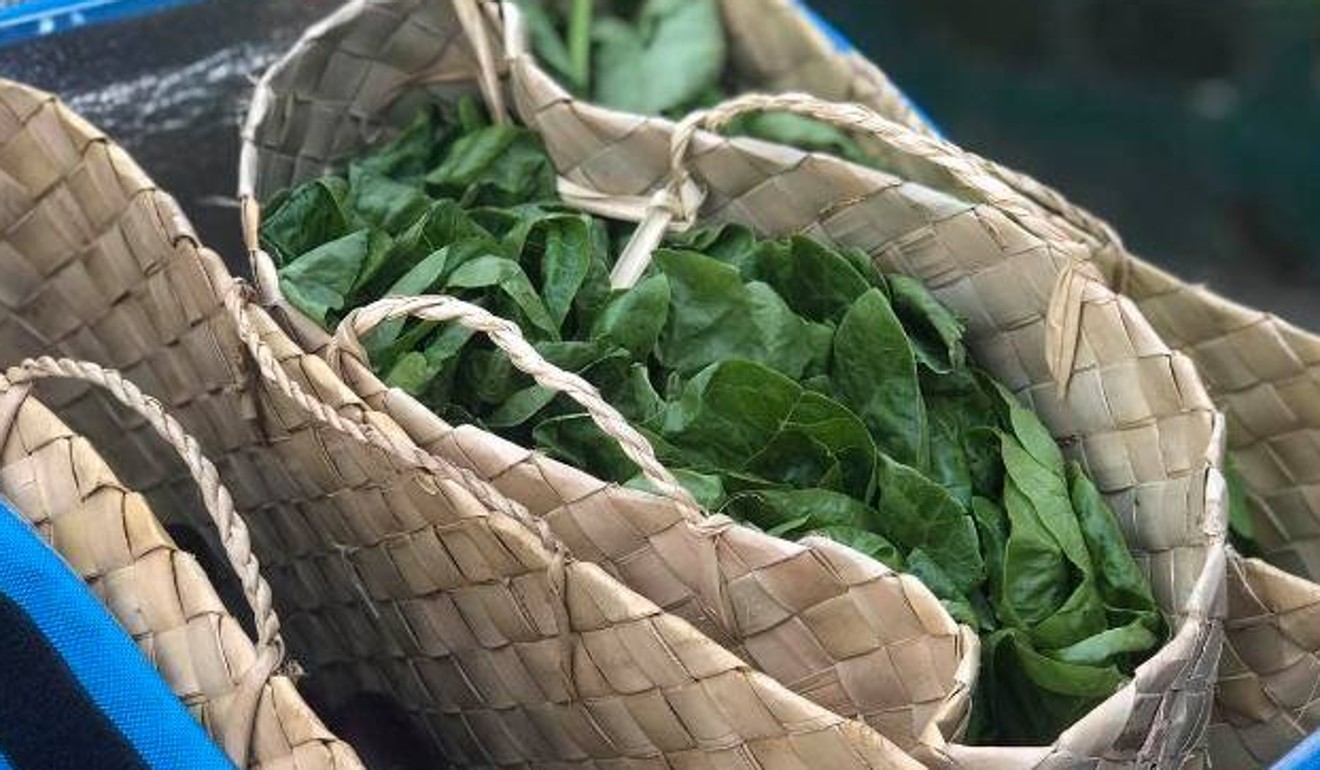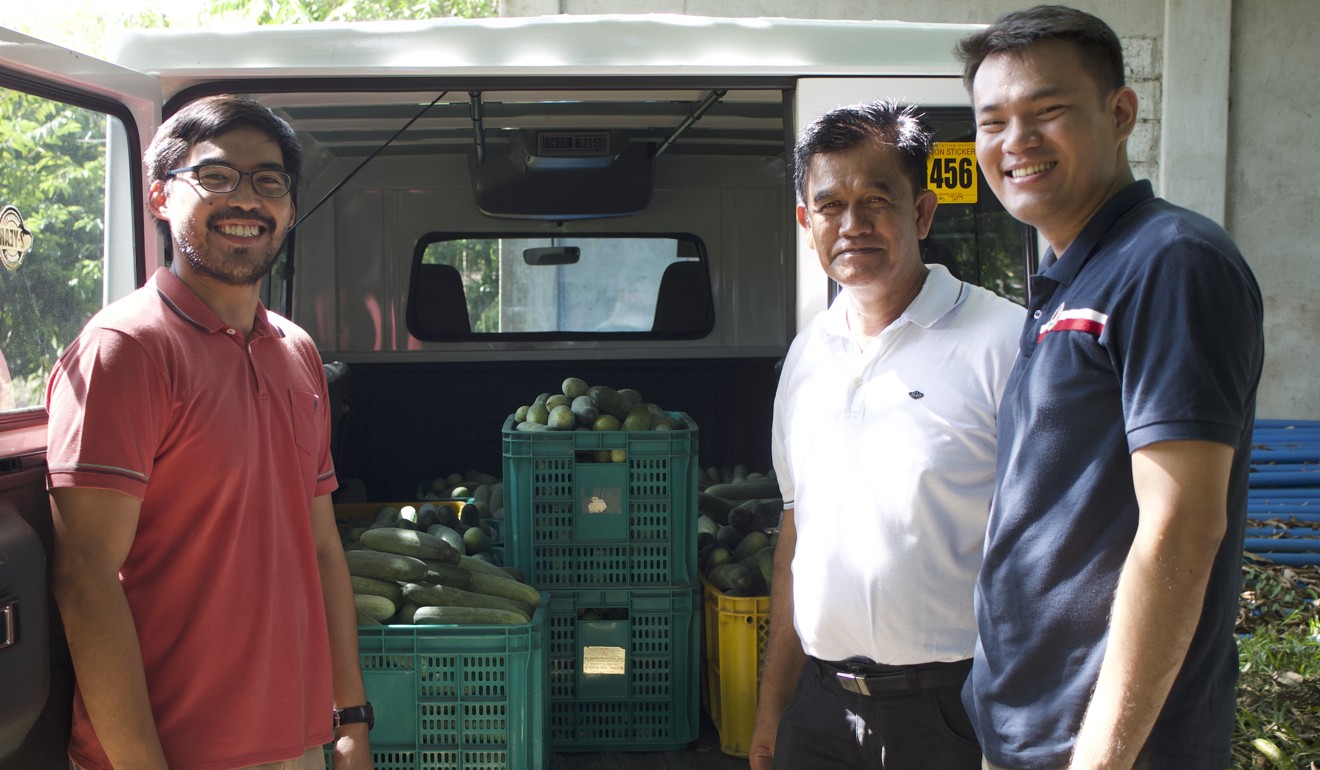
How home-grown tech firms and the Bayanihan spirit rescued the Philippines’ typhoon-hit farmers
- Platforms such as Session Groceries, BukidFresh and Agrabah work to open up new markets connecting institutional buyers with far-flung sellers
- They have stepped up their efforts as the nation’s farmers struggle with typhoon-hit harvests and a recent flood of cheap imports

When farmers in the highlands of La Trinidad, Benguet – 250km north of Manila – welcomed the new year, it was more with a whimper than a bang after a series of typhoons in the last few months of 2018 had repeatedly forced them to push back the harvest.
By the time January hit, hundreds of them were gathering the same crops simultaneously.
Prices plummeted, with vegetables like cabbages and carrots selling at a 70 to 90 per cent discount, according to reports, forcing many farmers to make a loss. Worse still, hundreds of kilograms of crops had to be thrown away after sitting unsold, rotting in farmyards.
The farmers aired their grievances on social media, attracting nationwide support from Filipinos who called on the government to help. But the official response – temporary financial aid – was less enduring than that of the entrepreneurs who changed their business models or ramped up formation of their start-ups as they answered the small-time farmers’ call.

Iloisa Diga, co-founder of Session Groceries, was one of the first to join the relief effort. Her start-up online grocery-delivery platform – based in Baguio City, just 10km away from La Trinidad – had been delivering fresh produce for months when she first received news of the farmers’ problems with oversupply.
“Upon hearing the problems of the farmers, my team knew it was time to expedite one of our goals in 2019 – to expand our services to Metro Manila,” she said.
Almost overnight, that is just what they did – though the expansion was not without its challenges. For one thing, they had no existing means to deliver goods to the doorsteps of customers in the Philippines’ National Capital Region.
Unfazed, Diga and her team decided to use the service buses that travel between Baguio and Manila several times a day and took to manual ordering through their Facebook account, posting in January about their intention to deliver goods to the capital and accepting orders via direct message.
Less than two days after the announcement was made, the company’s Facebook page was flooded with inquiries. One of its posts announcing the availability of potatoes for US$1 per kilogram – a price significantly lower than in Manila’s leading supermarkets – was shared more than 2,200 times.
By the end of the month, the start-up’s expansion was officially complete and while the vegetable glut in Benguet may have been temporarily eased, in the rest of Luzon small-time farmers everywhere were still experiencing problems with oversupply.
At least that is how it felt at Session Groceries, as its inbox kept filling up with requests to join the platform.
Felma Coching Manalo, a rice farmer from Mindoro, south of Manila, was one of those who reached out.
“My cousin, who’s also a farmer, just posted about his good experience with the platform, so I inquired too,” he said, describing how his farm had been selling unprocessed rice for years, mainly to cut costs.
“But with the platform, we have a ready market for processed rice, so we’re assured that our harvests will sell. It’s a great help,” he added.

The influx of messages prompted Diga to develop a system that “would allow farmers to not just sell through the platform … but to earn what they deserve”, she said.
Most small-time farmers in the Philippines are used to dealing with middlemen and would often acquiesce to whatever price the market dictated. To protect them from being short-changed, Session Groceries began formalising its relationship with its partner farmers, requiring them to produce statements detailing the costs of materials and labour used in any given harvest.
With this information in hand, the platform then assigns a price for the produce with a mark-up of at least 30 per cent, all of which goes to the farmer before Session Groceries takes its cut, according to Diga.

By the end of last month, the start-up was delivering between 350 and 400 orders each week and it had expanded its supply chain outside Benguet, to cover farmers in three more provinces. The variety of goods available on the platform had also expanded beyond root vegetables, to encompass other staples such as rice, as well as strawberries, and even cacao beans.
Session Groceries taps into a sense of community in the Philippines epitomised by what is often called the “Bayanihan spirit”, or the making of a collective effort towards a singular cause.
Its platform attempts to give small-time farmers a way to protect their livelihoods amid a flood of cheap imports following President Rodrigo Duterte’s scrapping of tariffs on imported vegetables, wheat and rice – and the start-up is by no means alone in its approach.
BukidFresh is another e-commerce site that customers can use to order directly from partner farms, with the promise that goods will be delivered within a week. Produce on offer ranges from highland vegetables to salad, mostly sourced from co-operatives in Southern and Northern Luzon.

Since its launch, the site has primarily served some of the biggest cities in Metro Manila, including neighbouring provinces that are south of the capital zone. While it was initially launched with the intent of becoming an on-demand delivery service, the company pivoted into an aggregator role, as farmers needed a middleman to deal with logistics.
“The encouraging feedback and the number of people from the business and agriculture sector who were willing to help us make our idea a reality were what really drove us to pursue this as a business,” said Aaron Franz David, one of the start-up’s founders.
Joselito Tibayan, a manager of the Palangue Agrarian Reform Cooperative, was one of the first to believe in the start-up. He served as the founders’ lead adviser when their idea was still in its infancy, and straight after graduation helped them to turn it into a fully fledged business.
“The platform may not be sustainable as the sole market for our cooperative for now, but it sure helps us offload our supplies. In turn, it drives the prices in our local market down,” Tibayan said. “In the long run, though, I see it as a bigger market, especially when e-commerce is booming in the Philippines.”
If we strengthen our ties with all partners … then this can work
In addition to offering farmers an alternative market for their goods, the company is offering its service to small businesses such as restaurants and food-processing firms – something that fellow start-up Agrabah has chosen to focus on as well.
Former seafood trader and Agrabah CEO Jun Ocol said he devised his company’s main AgrabahWharf platform to streamline the process of connecting institutional buyers, such as food-processing companies, with small-scale farmers.
Farmers can post the amount of crops they are able to harvest and sell on the platform, while buyers can share the number of products they are willing to buy.
When it launched in March, AgrabahWharf focused mostly on dried seaweed, from which carrageenan – a substance used in food products such as emulsifiers – can be extracted.
As Ocol already had a good working relationship with fishermen in the Bicol region due to his former profession, he knew all that was needed was a buyer that could buy their harvests. “We pitched to one of the largest seaweed-processing companies here in the Philippines, which is also a major exporter worldwide. By securing the market first, we ensured the farmers we work with get regular income,” he said.

Since its launch, AgrabahWharf has worked with around 500 fishermen’s families who mostly harvest seaweed as an additional source of income. Each family had already made at least US$140 in extra cash, Ocol said, while the company they sold to was able to cut procurement costs by as much as 60 per cent.
Like Session Groceries and BukidFresh, Ocol is aware that his start-up’s scalability will remain a challenge, especially when the service it offers – market matching – seems stuck in the pre-digital era in the Philippines.
But he remains convinced that by cooperating with government agencies and co-operatives, his start-up can “thrive and succeed”.
“If we strengthen our ties with all partners, ensure the farmers get proper training and build trust, then this can work,” he said. ■